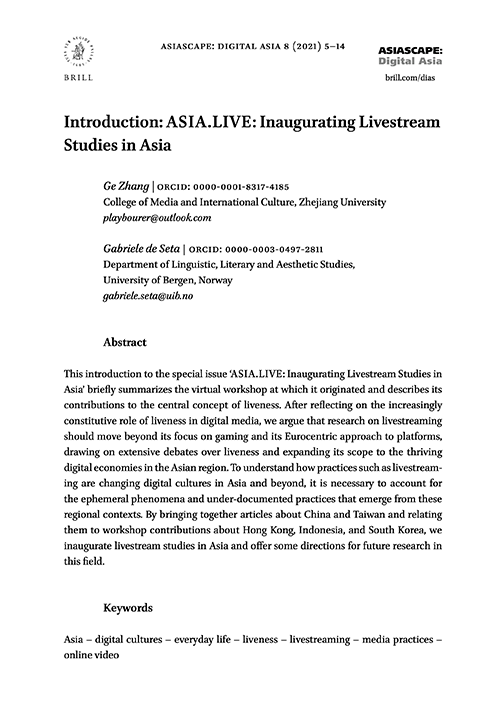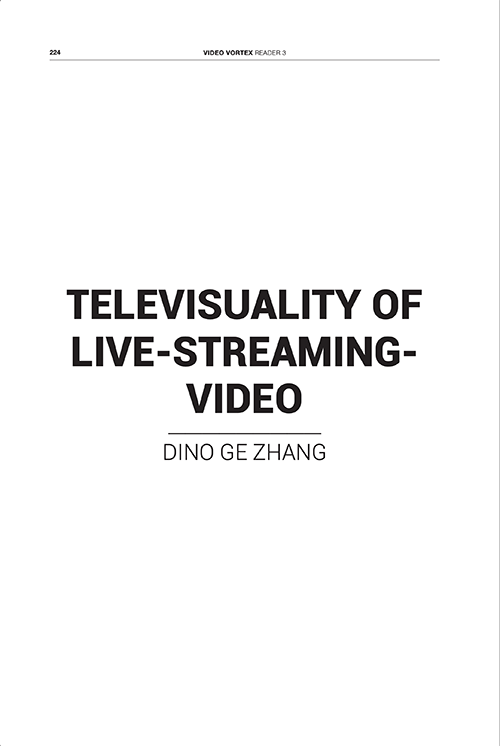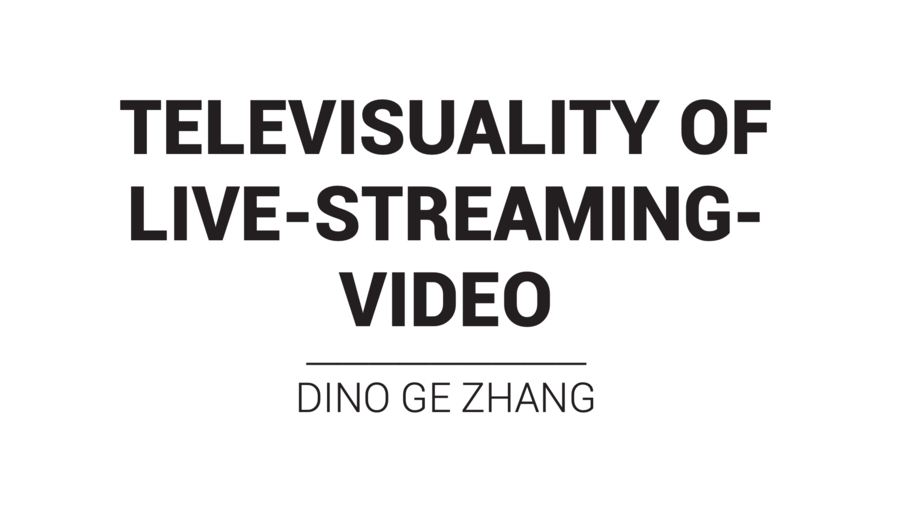Dr. Dino Ge Zhang, currently a Visiting Assistant Professor at SCM, is a media anthropologist and non-fiction writer. He specializes in ethnographic research on contemporary digital culture with medium-specific methods. His ongoing research primarily revolves around exploring the aesthetics, affective and socio-technical dimensions of contemporary (live)streaming media in the Sinophone world. Zhang received his PhD from the Digital Ethnography Research Centre at RMIT and subsequently became a Postdoctoral Research Fellow in the School of Media and International Culture at Zhejiang University before joining SCM.
He is currently working on a monograph entitled Livestreaming China: An Ethnography of Vulgar Boredom, which grows out of his doctoral dissertation. It delves into the early stages of livestreaming cultures from 2015 to 2017 in China and focuses upon marginal media cultures outside the mainstream attention economy. His central concern is to develop an ethnographic theory of a vulgar boredom, in the context of the contemporary video-centric digital culture. Grounded in long-term fieldwork, this approach to boredom differs significantly from the existing frameworks in fields such as aesthetics, philosophy, and psychology. He draws comparisons between contemporary art practices and performative cultures within various online subcultures which aids in demystifying philosophical speculations about boredom. in 2024, he was awarded a General Research Fund (Early Career Scheme) for the project “tracing the origin of the vulgar aesthetic on Kuaishou: Undercurrents of media cultures between Northeast China and Hong Kong”.
Recently, Zhang has also collaborated as a co-editor of a special issue on Asiascape: Digital Asia (2021) focusing on livestreaming studies, a non-fiction book titled (UN)LOCKED: Memories of Wuhan (2021) which collected local writings during the 2020 Wuhan lockdown, and a translated volume of Esports scholarship titled The Global Esports Reader (2023) published by East China Normal University. Zhang’s scholarly contributions extend to essays on a wide range of topics in contemporary digital culture. These include publications in Visual Studies, Verge: Studies in Global Asias, SFRA Review, Convergence, China Perspectives, and Games and Culture, among others.
  |





